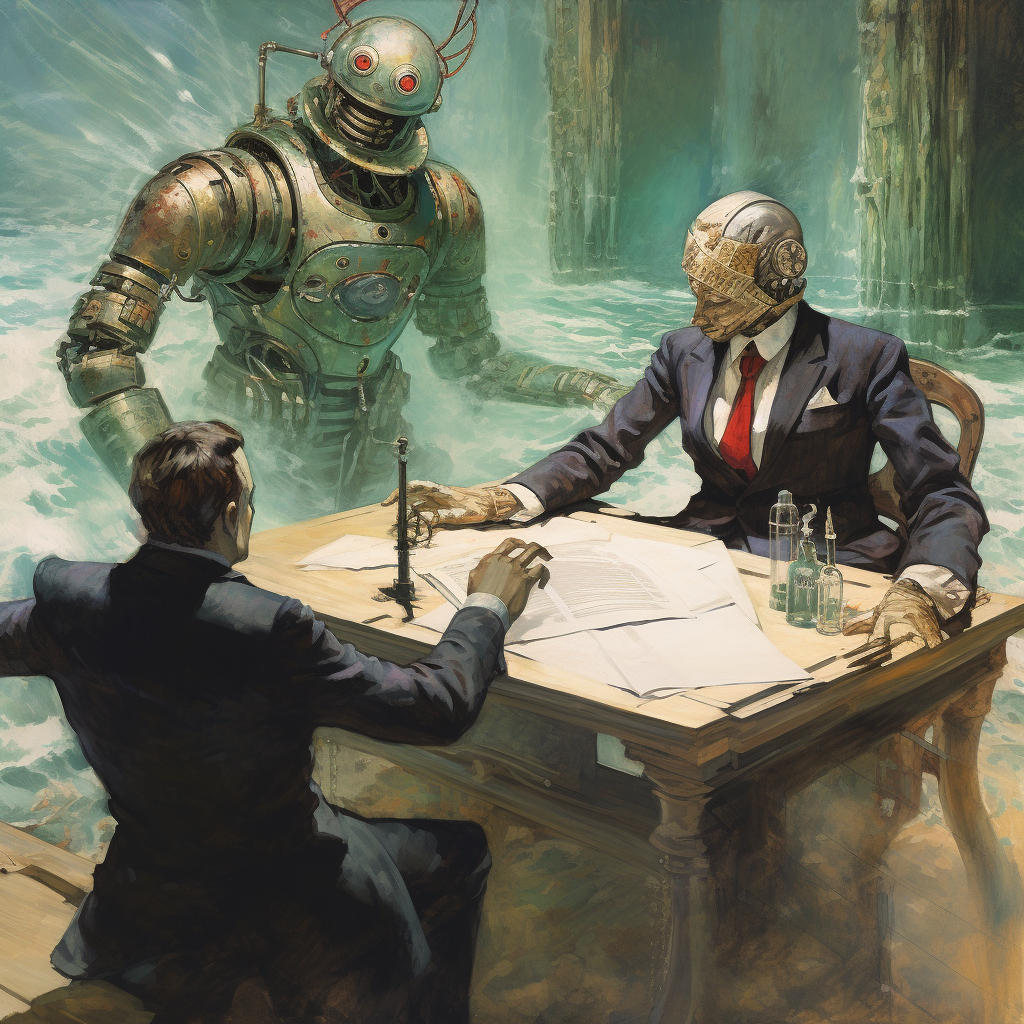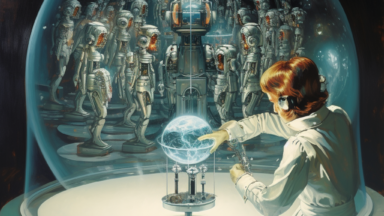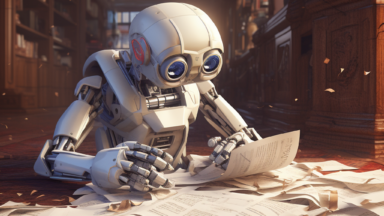
The AI platform lawsuits are coming. In an open letter, The Writers Guild and 8,000 authors just demanded OpenAI, Google, and other AI leaders compensate the creators who are “feeding” their platforms. “Millions of copyrighted books, articles, essays, and poetry provide the “food” for AI systems, endless meals for which there has been no bill,” says the open letter.
And history shows lawsuits are coming next – and fast.
Image designed in Midjourney AI
From market leader ChatGPT to image creator Midjourney AI (featured above), artificial intelligence platforms have quickly become a go-to resource for businesses – particularly content-based ones. It’s amazing how quickly it has become part of the toolbox.
It also fits into the “move fast, break things” ethos coined by Meta founder Mark Zuckerberg ages ago (and what he told U.S. Congress he “regretted”). The intention is simple: Build technology as quickly as possible, taking as much market share as possible, and ask for forgiveness for any recklessness later. Napster didn’t check in with the music labels, Uber didn’t meet with the taxi unions, and so on.
For those with long memories, there is an even closer tech parallel: Google Books. Exactly two decades ago, the relatively-tiny startup began scanning every book – literally – to make them searchable and available through its search engine. And it was the Authors’ Guild (the Writers’ Guild’s brother in arms) that began the lawsuit. The union was concerned not only about being able to opt out of the book digitization project, but that there was zero compensation for the original authors and publishers – even though Google would have a value-add, if not direct financial benefit from having the books in its database.
Sound familiar?
Google won the case in 2015, with some provisions for publishers to opt out.
The A.I. issue, though, has two big differences. First, unlike the Google Books era, artificial intelligence platforms are immediately being used by tens of millions. The latest stat shows 60 percent of all Internet users have used ChatGPT alone. This is simply because there is no alternative: You can’t go to the brick-and-mortar bookstore (versus Google Books) or the local record store (versus Spotify). We won’t be getting our own artificial intelligence sources anytime soon.
Second, our content is being braided with artificial intelligence output – and that output is braided with other people’s content. Again, it isn’t a one-to-one relationship like a book or a song. Modern artificial intelligence platforms are like money washers, taking a little of this, a little of that, and then mixing it together with scant traces of the original elements.
The A.I. content mixing process creates an issue when the original creators want a retraction, as how do you retract something that is blended in with thousands, if not millions of sources? The only practical way to deal with a creator issue seems to be removing it from future output, not retroactively taking it from output already created.
Which leads to a problem for us, the content creators. What does liability look like if your business is using A.I. output built with restricted, if not illegal sources?
We don’t yet know.
It’s tempting to increasingly lean more on artificial intelligence from your chatbots to your imagery to your wording. But the more A.I. platform output is interweaved, the harder it may be to pivot later.
And, no matter what A.I. lawsuits happen next, we all will have to pivot somehow.
Make sure your business doesn’t crash on autopilot.
Immedia understands that good content comes from the symbiotic relationship between A.I. and people. With the Contrend platform and Immedia Content, our proprietary analytic system will identify gaps in your specific content landscape, be it topic, style, format, genre, tone, style or length. We then enable and empower you to create a targeted and bespoke content strategy to open new marketing frontiers for you. We’re ready to talk anytime!
Drop us an email at info@contrend.com.

